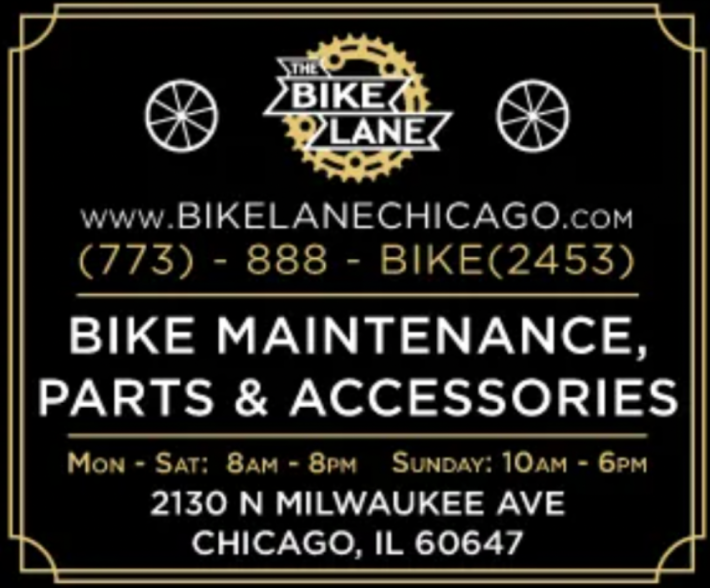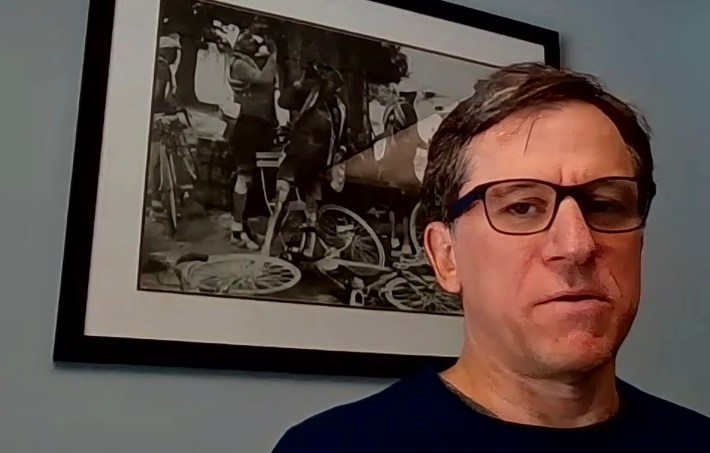
The Active Transportation Alliance and Ride Illinois held a Suburban Advocacy Connect session over Zoom on Wednesday, October 8th. Besides the updates on ATA and Ride Illinois, this latest meeting also included a market research presentation about gathering and expanding support for transit.
As usual, Dave Simmons, executive director of Ride Illinois, was a prominent speaker during the Zoom meeting. According to him, they've updated their bike safety quiz, "affectionately calling it 2.0," which is going to launch in the spring. They're also working on getting that ready for their mini grant program, which reached over 72,000 students last year. This year's goal is to reach 75,000.
Besides that, Simmons also talked about more serious news. "Bicyclist fatalities, that's something we've been keeping an eye on," said Simmons. "Fatalities in the state, official [Illinois Department of Transportation] number, I think, says 21 right now, but we're almost certain that doesn't include fatalities involving trains. So we're somewhere between 21 to 23 fatalities. Obviously, zero is preferred. This is a typically tricky time of year as daylight wanes and people are all still, doing their normal routines. So be extra vigilant when you're on your bike with lights in particular, especially if you end up working late, for example, want you to be visible."

ATA Advocacy Manager Maggie Czerwinski spoke next. One of the things she talked about was an open funding campaign whose money goes towards a lot of sidewalk and bicycle infrastructure within a two-mile radius of schools. Czerwinski echoed some of what Simmons mentioned, including the e-motos (high-speed electric bikes) versus sub-20 mph e-bikes conversation.
Czerwinski also discussed how October is the veto session for the Illinois Legislature. "Because right now, a million people use our regional transit system every day, and just thinking about when that will be possible for a lot of people, there will be a lot of impacts felt by everyone," she said. "So right now, it's the veto session. We're asking people to reach out to their state representatives and senators to let them know that we need to fix and fund transit."
Next up was ATA Communications Director Ted Villaire, who talked about a guide for public transportation advocates called "Positioning on public transit in Illinois towards building more public support and political will," which you can read here. "The top messaging recommendations that this research provided was using the frameworks of saving money, expanding job opportunities, and having a choice in how we get around, as ways to create more public support around transit," he said. "The first recommendation is focusing on affordability. And the affordability theme worked well with individuals who are interested in transit. It worked well with people who are interested in the environment and in activism, but it also worked well with people beyond these groups. So in a nutshell, it worked across a lot of different populations, and it was the top winner as far as getting people to act. And the message is that public transit helps our wallets and our household budgets."

Later, Villaire discussed some topics that didn't resonate well with certain groups, such as "non-riders, conservatives, older residents, white residents, and men." He explained, "The idea that transit helps people save time and use time better resonated with younger audiences, but risked backfiring with others. So use that framing carefully, according to the research. And similarly, framing transit as part of a healthier lifestyle didn't connect much with people, at least in the version that was tested, though other approaches might work better. So, with these two approaches, the research is urging us to be cautious, and I would say that this could probably apply to biking and walking too. But as you know, the research wasn't focused on that."
The final section of the guide discusses how to encourage people to take action. "And this might seem rather obvious, but the research recommends going after like-minded people first," Villaire said. "It just requires less effort. They are the low-hanging fruit, those who are already involved with a transit group, using transit themselves, interested in transit or interested in a relatively aligned topic in some way. And I would say that that applies to walking and biking as well."

Do you appreciate Streetsblog Chicago's paywall-free sustainable transportation reporting and advocacy? We officially ended our 2024-25 fund drive in July, but we still need another $42.5K+ to keep the (bike) lights on in 2026. We'd appreciate any leads on potential major donors or grants. And if you haven't already this year, please consider making a tax-deductible donation to help us continue publishing next year. Thank you!




